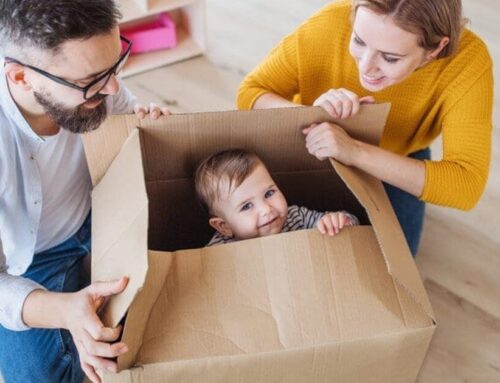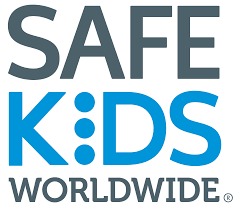10 Tips On How Parents Should Handle Relocation With Kids
Moving to a new place comes with its difficulties, and the unfavorable conditions would likely escalate when you have a little human in tow. Relocating to a strange place can be extremely stressful for both adults and kids, but the latter may have more trouble dealing with the changes. Therefore, you must be able to handle the events, before and during the move, with adequate care to help ease the young ones’ feelings during the transition.
Here are some tips that have helped parents reduce their kids’ anxiety during relocation:
1. Find a positive way to tell your kids about the relocation.
You cannot expect the kids to process the move the same way adults would do. Share the change with them the right way by telling them first before other adults know about it. Do not inform their teachers, other parents, and adult friends just yet until you have broken the news to your kids.
2. Give your kids concrete examples of things to expect when you move.
Prepare your kids enough for the move by telling them what will happen when you relocate. Make it known to them that they will have a new home and a new school, in addition to all the positive things that this change may bring, such as a bigger backyard, more school facilities, access to a nearby playground, and so on. Tell them about the different weather conditions, scenic views or other locations in the destination city but not seen in your current city. It could be an adventure park, arcade, or anything that may pique their interest.
3. Do not pack your kids’ favorite things right away.
No matter how tempting it might be to pack things up and clear the mess in preparation for your move, do not let your kids lose sight of the things they love. Exclude their favorite toys, blankets, or utensils from your packing if you do not want them to throw tantrums. Give them something old and familiar to hold on to while preparing for the move.
4. Let your kids have a peek at the new city.
This is what initial visits are for. You can take photos of the home-to-be, its surroundings, as well as envision what the new city has to offer. Let your kids browse through the pictures to help them visualize what their new home will be like. If you do not have photos, you can always look through the Internet.
5. Be more explicit to your kids about the details of your relocation.
Do not just expect kids to take your announcement as it is. They are likely going to ask questions, and you need to be forthcoming in answering them. Prepare to tell them about the new city, why you are moving, the name of their new school, and other concrete details. Make them feel like they are in the loop. They will also use the explained details to provide answers to friends or teachers who might ask them about the relocation.
6. Keep your kids entertained during the preparation for the move.
Packing is tedious and time-consuming. It is an activity that kids may not like. Keep them occupied with fun activities while you get on with packing. Alternatively, make them busy too by asking them to prepare for room décor ideas, itinerary for a new city tour, and such.
Some parents might advise you to break out the treats. It could be their favorite snacks, their go-to toys, or even some screen time. These little rewards are especially helpful during the moving day, when you are packing and unpacking, and when you are settling in.
7. Be cheerful.
Regardless of how stressful the move might be, show your kids a happy face. They will likely reciprocate the same attitude towards the relocation.
8. Relocating with toddlers
Moving with children under six years of age has its challenges, but this may be the most convenient life stage for a relocation or even mandatory at that moment. Although, they do not understand anything much about the change, but they still need to be properly guided and informed about it using these tips:
- Simplify your explanation about the move.
- Show what the move is going to be like by using their toys as explanatory items. This will draw their attention toward the explanation and bring amusement to them in the process as well.
- You may need to borrow their trucks and organize a little play to make them understand the story better.
- When you are about to pack their things in boxes, explain to them clearly that you are only keeping them temporarily for the move and that they will see and use these things again at the new house.
- Take your young kids with you during your initial visit to the new city if it is not too far from your current home.
- Pack some of your kids’ furniture to give them a sense of familiarity at the new home, or at least arrange their furniture the same way they were in the old house.
- Postpone any other significant change in your toddler’s life during the relocation until you have settled. It is not time to move them from their crib to a bed or subject them to potty training.
- Call in a babysitter when you move. Then, book a cab for them ahead of time, complete with the right car seats installed for your toddler and other kids, when you are ready for the kids. You can try Kidmoto car services and reserve a sedan, SUV, or minivan through their app or site, complete with one to three pre-installed child safety seats appropriate for the children’s age.
9. Relocating with school-aged kids
Elementary kids may not think or show much concern about the move, but they still need to adjust to the transition. They might feel worried about leaving their old friends behind and forging new relationships but assure them that they can make new friends anyway.
To avoid worsening your kids’ anxiety, collect all the information your kids’ new school is going to need. These usually include their birth certificate, report card, and medical records.
10. Relocating with teenagers
Teenagers may not be as willing to make the move as much as the younger kids, especially when they have grown attached to their social circle. You must acknowledge their worries and tamp down these concerns by assuring them that coping with these changes will prepare them to deal with future changes.
To help your teenagers cope better, bring them back for a nostalgic visit to your old home. Let them meet old friends and neighbors.
Bonus Tip: Arrange the kids’ room first.
When you arrive at the new house, fix your kids’ room first before unpacking anything else. Try to give toddlers and other young kids familiar surroundings as soon as possible.
During the transition phase, give your kids time to be comfortable at their new house and new school. Encourage them to find new friends while keeping in touch with their old friends.
Relocation is a big change for everyone in the family, but you can use the tips above to make it a more positive and fascinating experience. You can also use this opportunity to bond, grow closer as a family, and make your new home a happy one.









